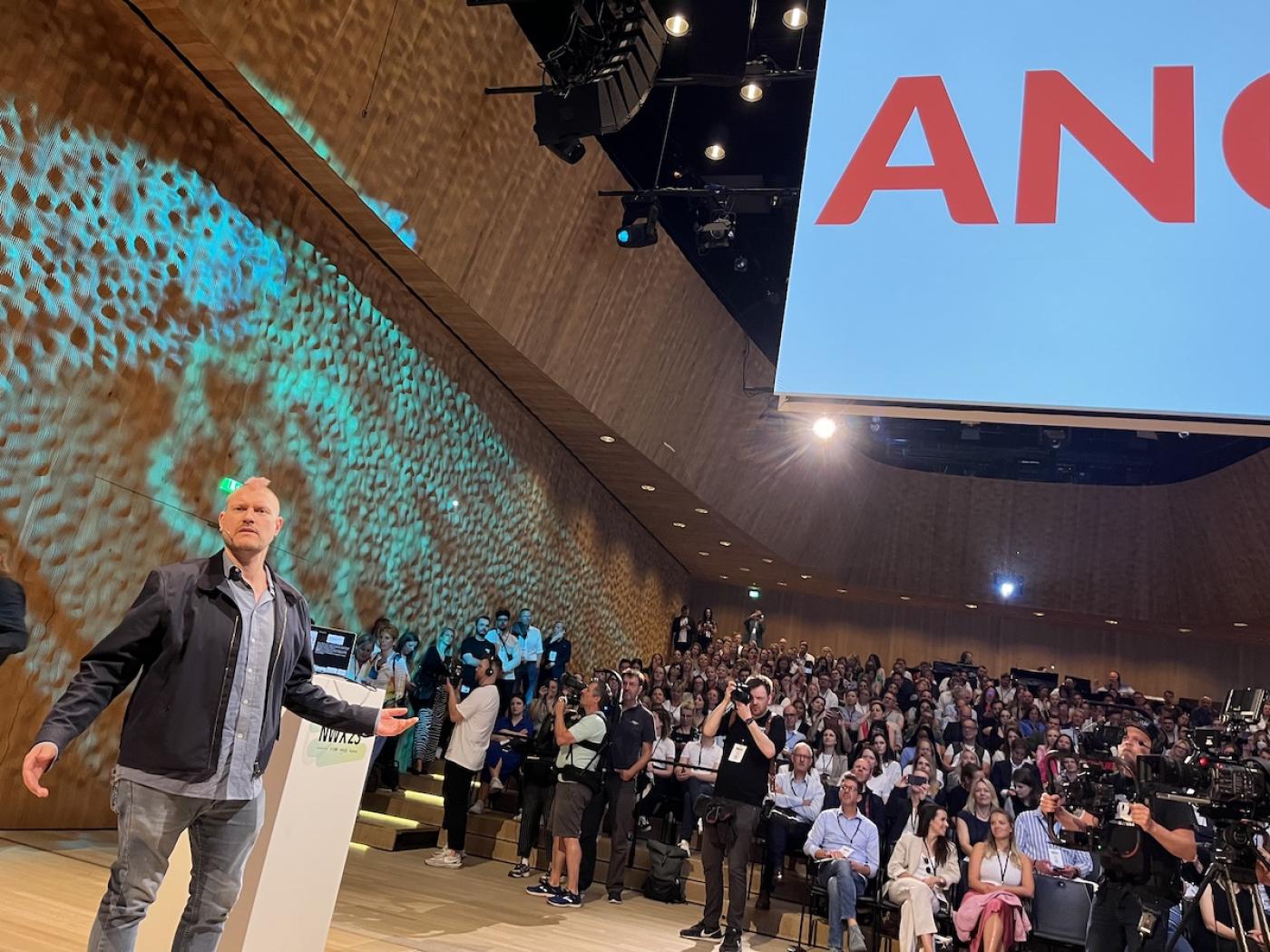During the opening in the Elbphilharmonie's Grand Hall, a show of hands revealed delegates from all over Germany. The lack of skilled labour, intergenerational conflicts and artificial intelligence (AI) are currently among the biggest challenges on the labour market, Petra von Strombeck, CEO of New Work SE, stressed, adding: "We have to seize the opportunities of digitalisation, promote intergenerational talks and focus on skilled labourers' needs to prepare well for the future."
The impact of AI on the world of work, how companies can score in the battle for talented professionals and improving intergenerational talks topped the agenda of the New Work Experience (NWX 2023) in HafenCity on Wednesday (June 14, 2023). Around 150 speakers from the political sphere, business, HR, science and culture took to 16 stages during the "Work forward" themed event attended by 2,500 delegates and hosted by the Hamburg-based New Work SE.
Plenty remains to be done
AI triggering change in world of work
During a deep dive hosted by Sascha Lobo, the author and digital expert noted: "AI will change all aspects of our lives." However, it is a question of ensuring that AI serves rather than dominates people. Developing a sense of the coming AI transformation is crucial as the era of AI has already begun, Lobo said. ChatGPT functions similar to human thinking, he pointed out. Workers and employers should be in a "mode of constant learning" instead of falling into a state of rigidity, and urged delegates: "Throw yourselves into all AI-related content." Companies should also prepare for the next big step and add AI divisions to the social media departments set up since 2008,

Economist relying on AI to combat labour shortage
Emphasis turned to AI's potential to solve the shortage of skilled labour during a masterclass by Prof. Dr. Alexander Spermann at New Work SE in HafenCity. People's primal fear that machines could render human beings superfluous is unfounded, he noted. Digitalisation leads to more prosperity and enables people and society to become more efficient. However, this also has an impact on the labour market. Routine jobs in particular could be automated by algorithms and robots.
AI as a productivity booster
However, the job-creating effects will prevail, according to Spermann. Given the lack of skilled labour and demographic change, the "prospects are good for now". New technologies create new professions, e.g. web designers, social media managers and ChatGPT prompters. The use of AI might increase productivity and reduce production costs. A programmer, for instance, can offer software at a lower price because the engineer programmed it more cost-effectively with Chat GPT. "AI is an element of digitalisation and has the potential to make staffing redundant by increasing productivity," predicted Spermann, who is also an advocate of the four-day week. "Jobs will change hugely. Further training and soft skills such as 'being open to new things' are more important than ever," he stressed.

New thinking spaces
Many companies are mulling remote working versus a return to the office. Beiersdorf, a German multi-national based in Hamburg, remains committed to office work and to Hamburg. The company is building the so-called Beiersdorf Campus at a cost of EUR 250 million in west Hamburg, where its success story began more than 140 years ago. Vincent Warnery, CEO, remarked: "It is important for our 'us' culture to work together in the office." That is crucial for employer branding, said Marie Boden, Campus Project Manager: "We have great brands, but we depend on constantly developing the next innovation." This works best with "haptic products with a physical presence". Beiersdorf's employees were involved in planning the new branch in Eimsbüttel, Warnery and Boden emphasised. The first teams have already taken up work in the campus, which will be officially opened in September.
NWX 2023 with job fair for the first time
The Xing Job World was a first at this year's New Work Experience, which is considered the leading event of its kind in the German-speaking world. Organisers also held a reverse recruiting event during which 20 companies "applied" to more than 800 talented professionals in the New Work SE headquarters. Next year's event is expected to offer a wealth of topics and even more new aspects.
sb/pb
Sources and further information
New Work SE
Founded as the business network openBC by Lars Hinrichs, the company was renamed Xing in 2006 and New Work SE in 2019 and has been listed on the stock exchange since 2006. New Work SE is headquartered in Hamburg and employs around 2,000 people. Other branches have been set up in Berlin, Vienna and Porto.
More
Similar articles

Hamburg among most promising cities of the future, FDI survey finds

Generation Z most likely to change jobs, Xing survey finds

Three promising fields of application for generative AI
